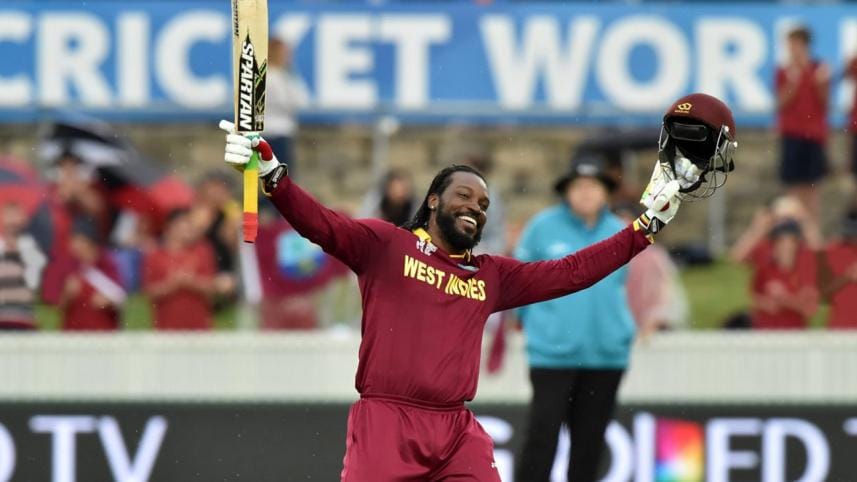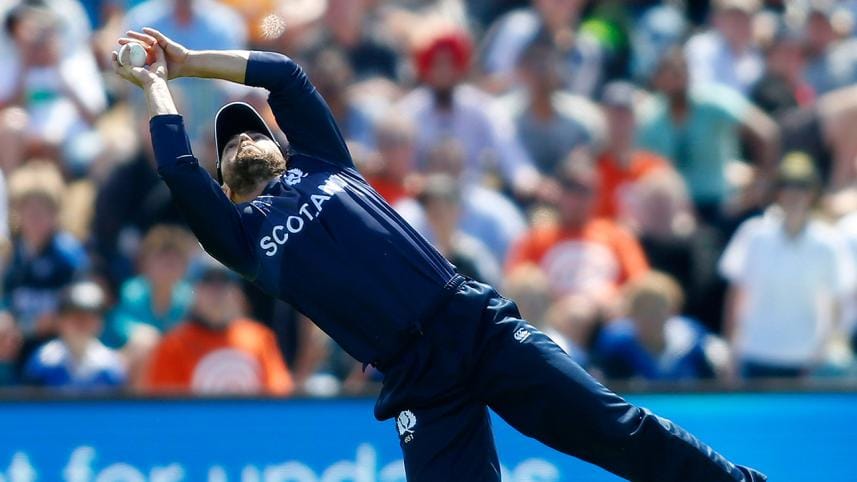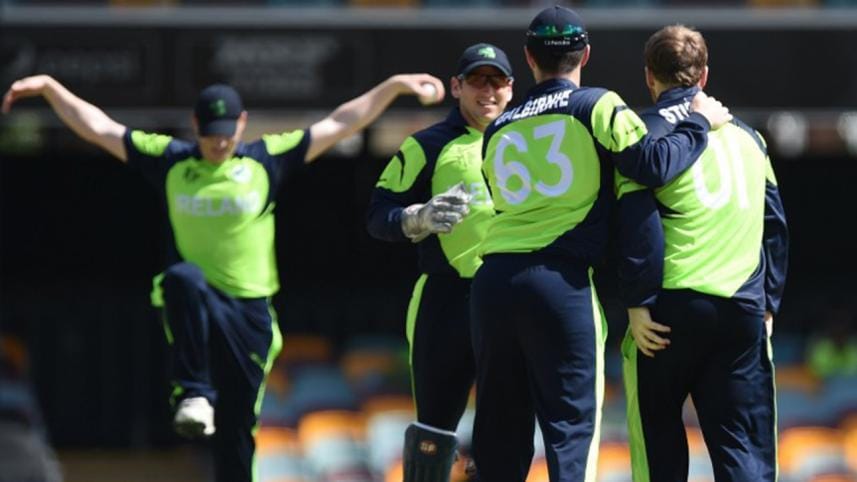A Christchurch miracle and an Afghan cartwheel

George Dobell - England v Scotland, Christchurch, February 22
As chance would have it, England's match against Scotland was the day after the fourth anniversary of the Christchurch earthquake. Christchurch is the place my family comes from. My grandfather nicknamed me Hadlee, after one of the city's most famous sons. My parents were there when the earthquake struck. I probably should have been aware of the enormity of the disaster that struck this pretty little city.
I wasn't. Until you've walked through the empty city centre, stopped at the memorial to the dead, seen the condemned Lancaster Park stadium - the Hadlee Stand has already been pulled down at New Zealand's first Test venue - and understood that homes and offices and shops once stood where all these vacant blocks now lie, it is hard to fully take in the extent of the tragedy. The centre - once beautiful - has simply gone. Most of the people who lived and worked there have gone with it.
It's incredible that the city has recovered enough to host a sporting event of global significance, albeit in a park setting. In years to come, I'm pretty sure I won't recall who won or even who played. But I'll remember - and be grateful - that sport, and something approaching normality, returned to Christchurch.

Brydon Coverdale - Pakistan v West Indies, Christchurch, February 21
Andre Russell walked to the crease with 2.5 overs left against Pakistan in Christchurch. He faced 13 balls, including two he didn't score runs off. He still managed to finish unbeaten on 42. With hair and beard trimmed to look like Mr T's Clubber Lang character from Rocky III, Russell decided to club 'er long. Strong down the ground, Russell smashed four sixes and hit the ball with ferocious power. He had walked out at 259 for 5 after 47.1, and walked off with the total at 310 off 50 overs. The fastest ODI fifty was on the cards, had he not run out of time.
Andrew McGlashan - Afghanistan v Sri Lanka, Dunedin, February 22
The spirit of Afghanistan's quick bowlers is infectious. Shapoor Zadran, his flowing locks and steaming run-up, has commanded much of the attention but Hamid Hassan - flags on his face, heart on his sleeve - stole the show against Sri Lanka. In Dunedin, he ripped a delivery through the defences of Kumar Sangakkara, pegging back middle and off stumps, and then celebrated with a cartwheel that probably left the physio in a state of panic. It would have struggled for top marks from any Olympic judges but the Afghanistan supporters will not have cared at all that he ended up flat on his back.
Jarrod Kimber - England v Scotland, Christchurch, February 23
Public nudity can go wrong. And pitch invaders are some of the most horrendous bores of all time. But every once in a while one shows such daring, such speed, such everything, that you have to be on their side. The Hagley Oval invader for the England-Scotland game actually improved the entire game of cricket just by his naked jiggle running. When he faked right, went left, and left behind a puddle of sweaty security guards, he became a beautiful naked streak. He jumped the ground fence, ran through the media zone, past the nets and then over another fence that could have, on another day, ended in some of the worst pain imaginable. But as they say, if you are going to slash, slash hard. Somewhere in Hagley Park, north or south, where they used to be a pop-up cricket stadium, a naked man roams. May he never go home, may he never be clothed.
Devashish Fuloria - Afghanistan v Scotland, Dunedin, February 26
A race is on at one end of the bowling spectrum among a bevy of faster men to bowl quick, hurry batsmen, test their eyes and reflexes. At the other end of that spectrum, one man stands alone. In Scotland's match against Afghanistan, a delivery from Majid Haq was clocked at 67 kph, surely one of the slowest ever recorded. And that, with the wind behind him. It hung in the air for more than a second, leaving the batsmen to fight their instincts and wait. If records haven't been maintained, they should now, for a man with the gall to bowl that slow, to mess with the heads of batsmen in this era of batting madness, must be celebrated.

Andrew Fidel Fernando - Afghanistan v Sri Lanka, Dunedin, February 22
Sri Lanka are often the flag bearers for amateurism in world cricket but not at this World Cup. Hamid Hassan was halfway through his fifth over in the match against Sri Lanka, when he felt something wrong with his boot. He stopped, redid his laces and bowled another one, but on his walk back to his mark, he was clearly unhappy again. As soon as Shapoor Zadran saw this, he jogged over from cover and asked what the problem was. When the two discovered they were the same shoe size, without even thinking, Shapoor had offered his own boot to his team-mate. This is a team playing in the biggest stage their sport has, but in spirit as well as in name they are representing children all over their nation. Children who will be swapping shoes, and balls, and bats, and shirts as they play cricket into the Afghan sunset.
Firdose Moonda - West Indies v Zimbabwe, Canberra, February 24 and South Africa v West Indies, Sydney, February 27
Chris Gayle has seemed to be on his knees since the series in South Africa and had struggled to buy a a run, as one fan put it and the WICB president reminded. His story had all the makings of an epic hero, a fallen great, but in true Shakespearean style, he became a hero. His double-century against Zimbabwe was one part hard work, one part heartless. But he showed what the knock meant to him when he got on his knees in celebration. Two days later, he had been struck down again. AB de Villiers was the man with no mercy as he struck a stupendous century which left Gayle in the dust. Watching the ebb and flow has been fascinating.
Abhishek Purohit - India v South Africa, Melbourne, February 22
Indian fans love to celebrate individual player landmarks. Expectation starts really building up from the time the batsman enters the late 80s. In the 90s, each ball is an event. At the MCG, it all seemed like one raucous, extended event with close to 90,000 filling the stands. Having watched a large part of the game from the stands, I was on my way back up to the media box when I changed my mind and decided to hang on longer. The reward was three almost-celebrations and the big, actual one. For Shikhar Dhawan played three dot balls on 99 and if the crowd could have had its way, he would have reached the landmark thrice before he finally did. And when he did, four packed tiers of gigantic stands gave him an ovation he will probably never forget.



 For all latest news, follow The Daily Star's Google News channel.
For all latest news, follow The Daily Star's Google News channel.
Comments